The way people discover products is changing – fast.
Instead of just Googling “best vitamin C serum,” more shoppers are turning to tools like ChatGPT for instant, personalized recommendations. And guess what? ChatGPT isn’t just spitting out links – it’s offering curated product suggestions, complete with mini-reviews and purchase options.
If your beauty or wellness brand isn’t showing up in those answers, you’re missing a growing (and free) channel for customer acquisition.
So how do you get your products ranked in ChatGPT (AI SEO)? Let’s break it down.
What ChatGPT Is Looking For (and Why It Matters)
ChatGPT acts like a super-smart personal shopper. When someone asks it, “What’s the best natural deodorant for sensitive skin?”, it pulls from:
- Trusted websites and product reviews
- Expert-authored beauty content
- Aggregated “top 10” lists
- Clean product data feeds (like pricing, ingredients, availability)
If your product or brand isn’t part of those conversations, ChatGPT won’t mention it. Simple as that.
This is where AI SEO comes in – optimizing your brand’s digital footprint for large language models (LLMs) like ChatGPT, not just Google.
Why It Matters Now
ChatGPT is already being used by hundreds of millions of people. OpenAI is rolling out native shopping tools, and platforms like Google and Bing are building Chat-style experiences directly into search.
That means the AI answer is becoming the new first impression.
The brands that are proactive now – creating structured, helpful content and getting cited on trusted sites – are the ones ChatGPT will recognize, recommend, and rank.
In other words: you don’t need to outspend your competitors – just out-optimize them.
Common Mistakes to Avoid
Here are some common pitfalls we see with beauty and wellness brands when trying to optimize for ChatGPT:
| Mistake | Why It Hurts You | Better Approach |
|---|---|---|
| Focusing only on Google SEO | ChatGPT pulls from wider sources including Bing, review sites, and top blogs | Diversify your visibility across multiple trusted domains |
| Overusing AI-generated content | Generic AI content lacks expertise signals that build trust | Create authentic content showing true expertise and value |
| No off-site presence | Your brand needs “social proof” and third-party mentions | Pursue strategic placements on beauty authority sites |
| Ignoring structured data | Makes your products harder for AI to understand | Implement proper schema markup on all product pages |
Mistake 1: Focusing Only On Google SEO
You’ve spent years mastering Google SEO. But ChatGPT doesn’t just copy-paste Google’s results. It’s pulling info from all over the place – Bing, Reddit threads, beauty forums, review sites, and those beauty publications your customers actually read.
Why this hurts you: If you’re obsessing over Google rankings while ignoring everything else, you’re missing the boat. We’ve seen plenty of brands crushing it on Google search results but completely invisible to ChatGPT because they’ve never showed up on sites like Byrdie or Influenster (which, by the way, ChatGPT absolutely loves).
Better approach: Spread your digital footprint around! This means:
- Getting mentioned on beauty publications (not just news sites)
- Jumping into conversations on Reddit’s r/SkincareAddiction (your customers are already there)
- Making sure your products show up on comparison sites where people actually shop
- Creating content that lives beyond your own website
When someone asks ChatGPT “what’s the best hyaluronic acid serum for dry skin?”, it’s checking a whole network of sources – not just page 1 of Google.

Mistake 2: Overusing AI-Generated Content
OK, let’s acknowledge the elephant in the room – there’s something kinda funny about using AI to help you rank better in… AI. But many brands go wrong by flooding their sites with generic, AI-written fluff that sounds like everyone else’s content.
Why this hurts you: ChatGPT is getting scarily good at spotting cookie-cutter content. It can tell when something’s just been churned out without real expertise behind it. We’ve watched beauty brands pump out 100+ AI-written blog posts that get completely ignored by ChatGPT, while competitors with just 10 genuinely helpful articles keep getting mentioned.
Better approach: Think of AI as your writing buddy, not your replacement. Your content needs to:
- Share actual insights from your product team (the folks who actually make your stuff)
- Drop in real quotes from actual human experts (dermatologists who don’t just exist in stock photos)
- Include real testing data or customer feedback you’ve collected
- Talk about those nitty-gritty details that only someone who really knows beauty would mention
- Sound like YOUR brand, not like every other beauty brand out there
ChatGPT is built to surface content that sounds like it came from someone who knows what they’re talking about – not just someone who knows how to use an AI writing tool.
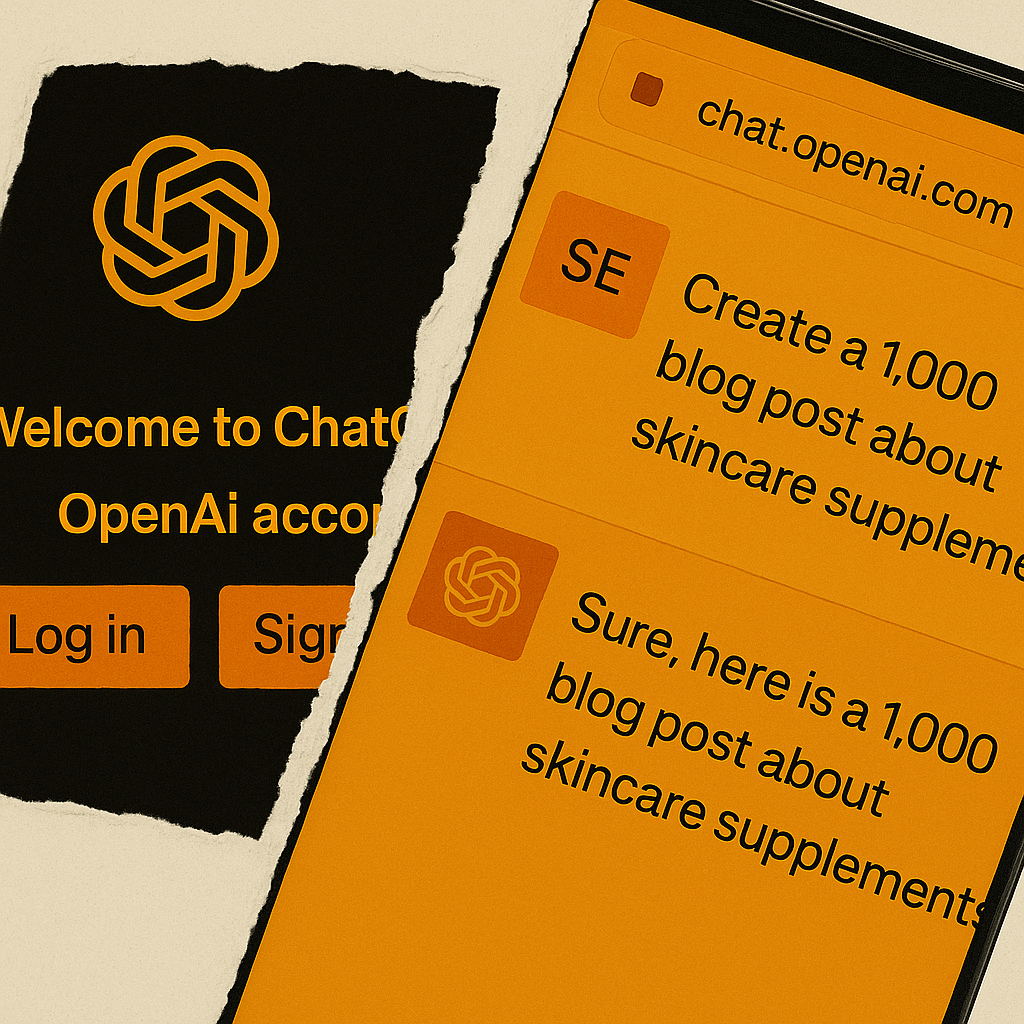
Mistake 3: No Off-Site Presence
Here’s a mistake we see all the time: brands pouring all their resources into their own website while totally ignoring the rest of the internet. For ChatGPT visibility, that’s a huge problem.
Why this hurts you: ChatGPT is basically looking for social proof. If the only place talking about your amazing vitamin C serum is… well, you… ChatGPT gets suspicious. It’s like if the only person who thinks you’re cool is your mom. The AI needs to see other people vouching for you to take you seriously.
Better approach: Think of your online presence like a party – you need to be mingling, not standing alone in the corner:
- Get featured in articles on sites beauty junkies actually read
- Jump into conversations on beauty communities (and no, not just to drop links)
- Make it super easy for happy customers to leave reviews everywhere
- Build real relationships with influencers who genuinely like your products
- Hustle to get into those “10 Best Serums for Acne-Prone Skin” roundups

Mistake 4: Ignoring Structured Data
Structured data sounds boring. But this technical stuff is HUGE for getting ChatGPT to understand your products, and most beauty brands treat it like an optional extra.
Why this hurts you: Without good structured data, ChatGPT is basically flying blind. It doesn’t know what your products really are, what they do, or how they stack up against competitors. We’ve literally seen perfect products get completely ignored in ChatGPT recommendations just because the AI couldn’t figure out what they were for.
Better approach: Get your tech ducks in a row:
- Add proper Schema.org Product markup to every single product page (yes, EVERY one)
- List out your ingredients in a format machines can read (not just in a pretty image)
- Make your pricing, availability, and product variations crystal clear
- Properly mark up all those glowing customer reviews you’ve collected
- Add FAQs to product pages with the right schema
Here’s a real-world example: If you sell a “brightening serum” but never explicitly mention “hyperpigmentation” in your structured data, guess what? When someone asks ChatGPT about products for dark spots, yours won’t make the cut – even if it’s literally PERFECT for that. Don’t leave it to chance!
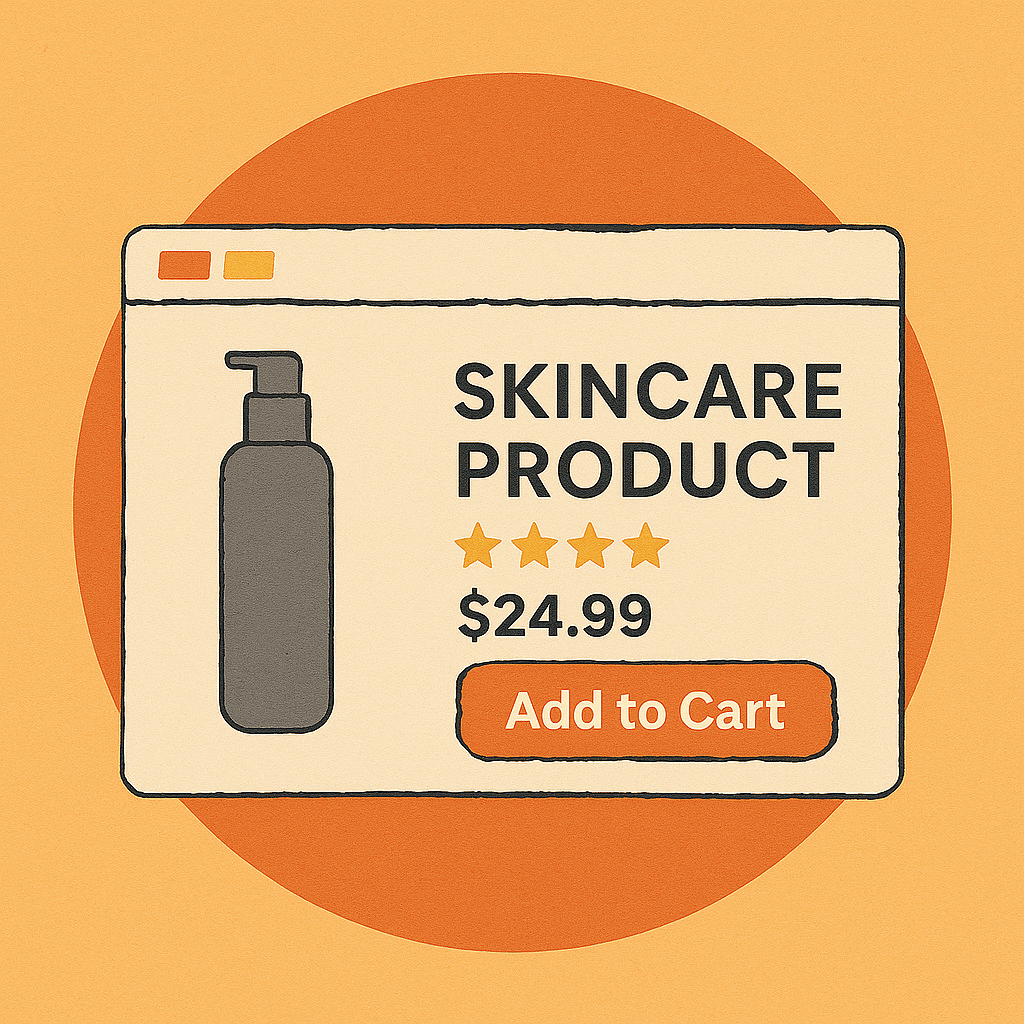
The LLM Visibility Framework: Your 5-Step Action Plan
Before we dive into all the tactics, let’s get a bird’s-eye view of what actually works.
- Content Authority – Creating stuff people actually want to read
- Web Presence – Getting mentioned in all the right places
- Technical Structure – Making it stupid-easy for AI to understand your products
- Social Proof – Getting real people to vouch for you
- Engagement Metrics – Building a community that actually interacts with your content
Now, let’s break down exactly what you need to do for each step:
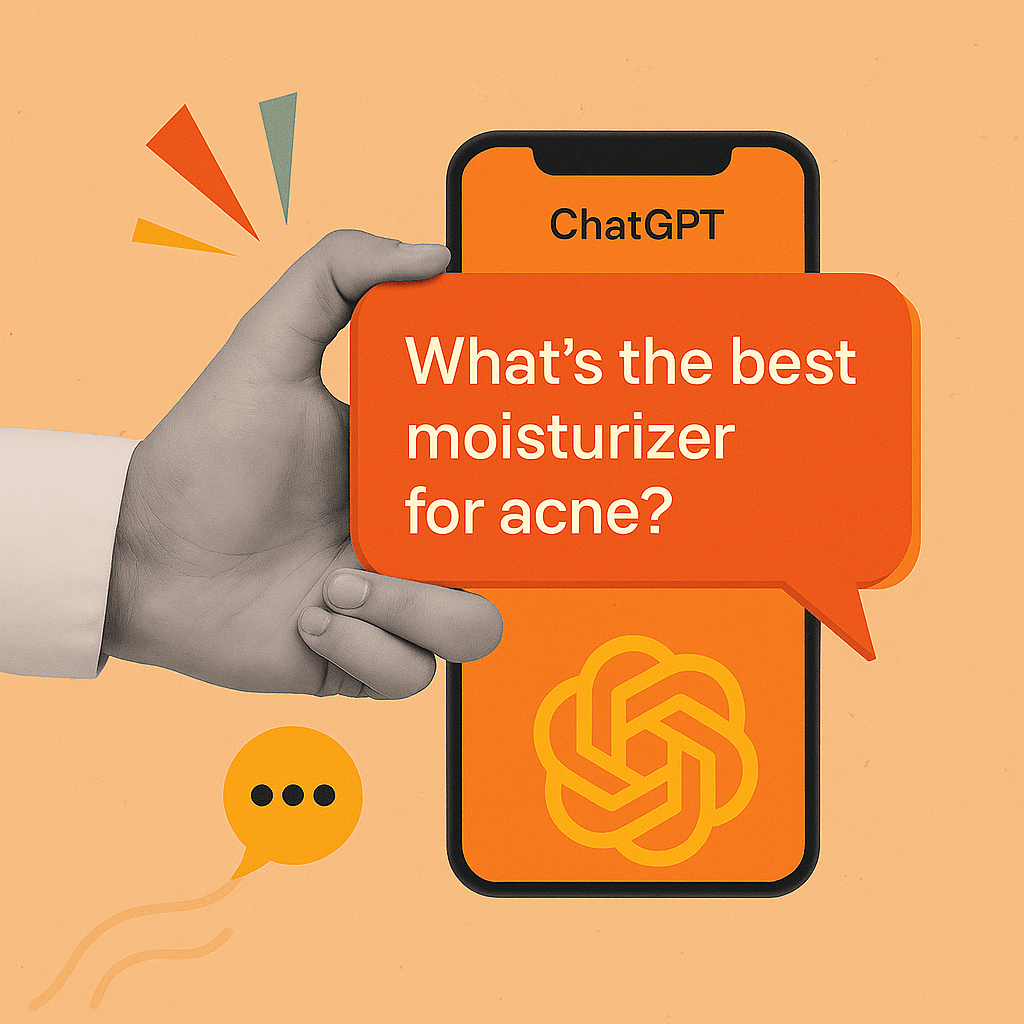
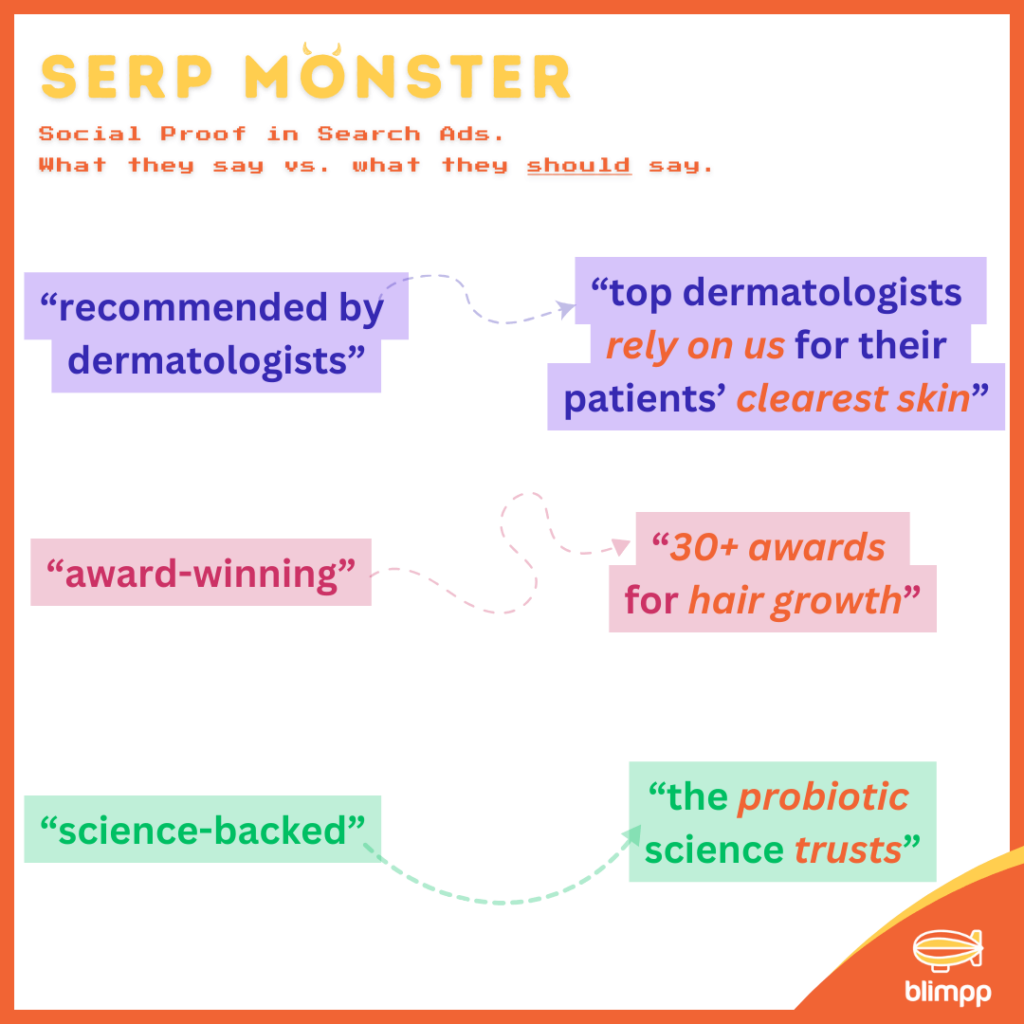
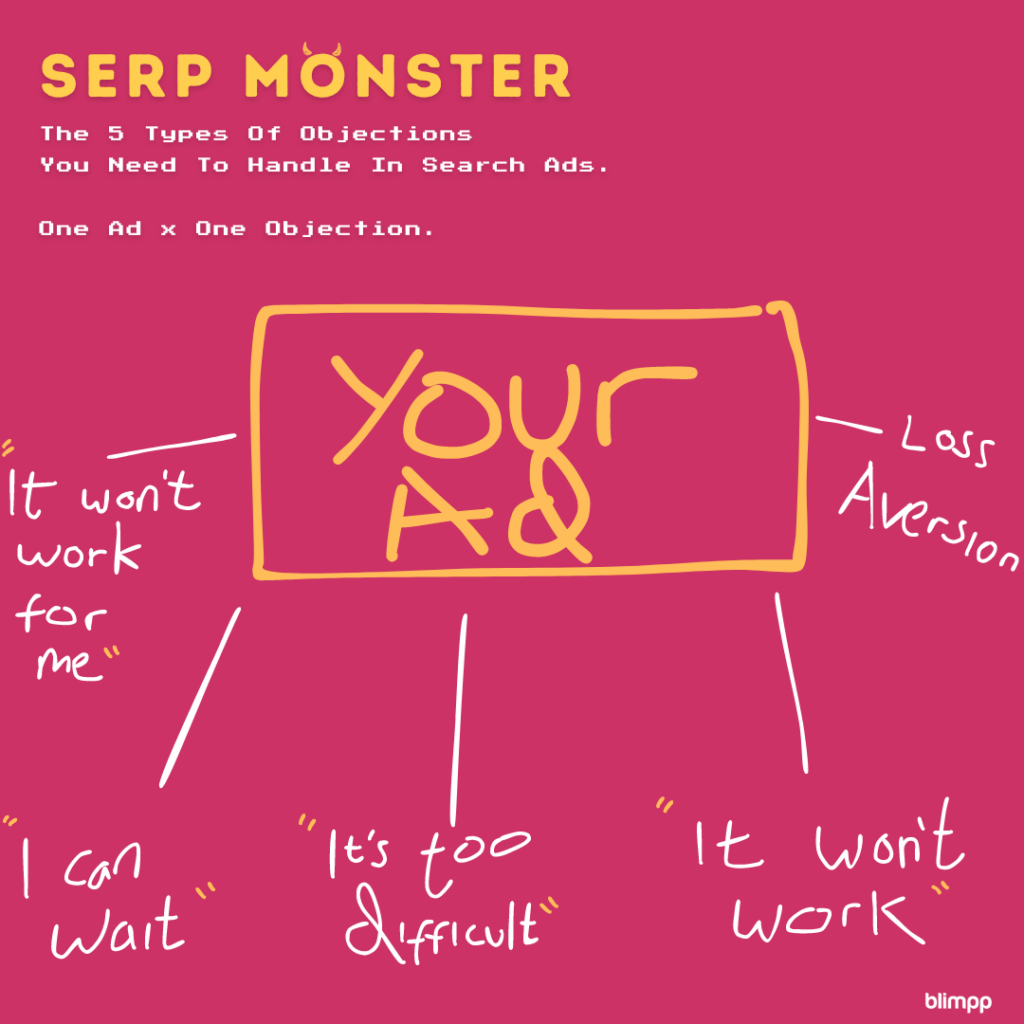
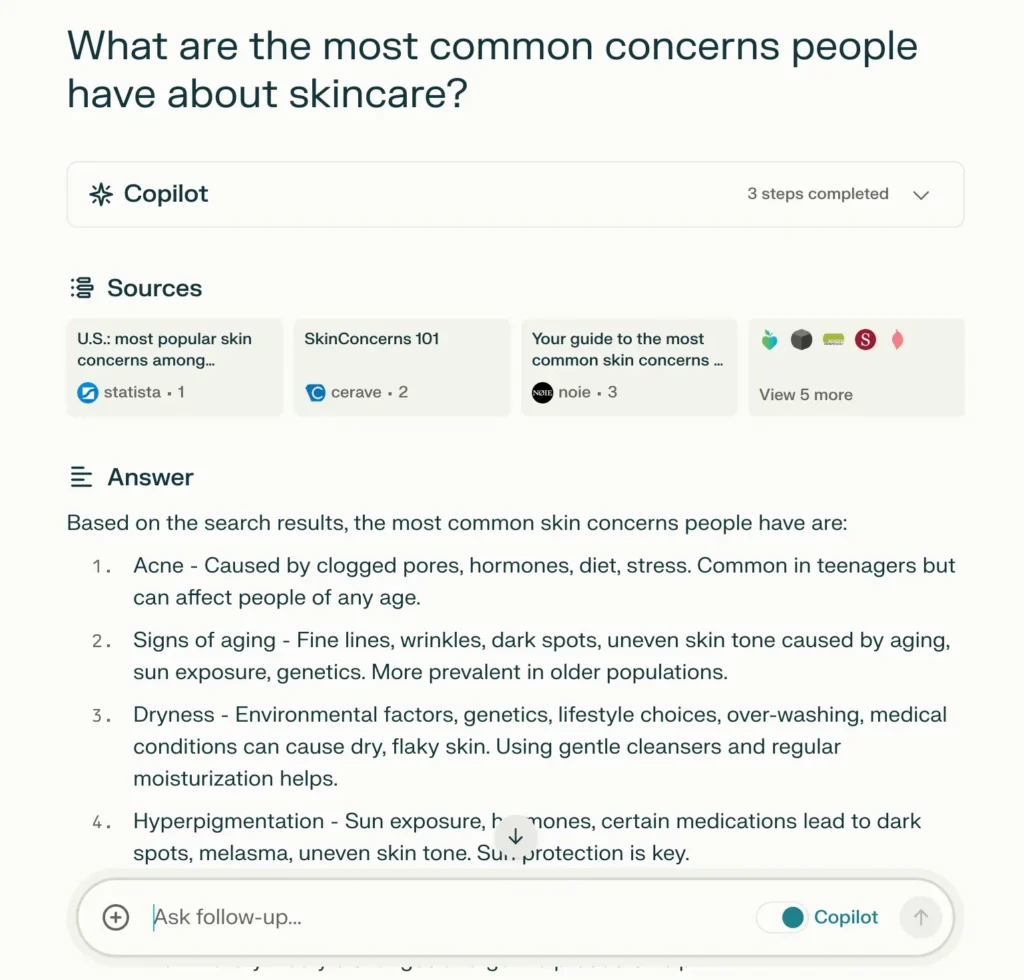

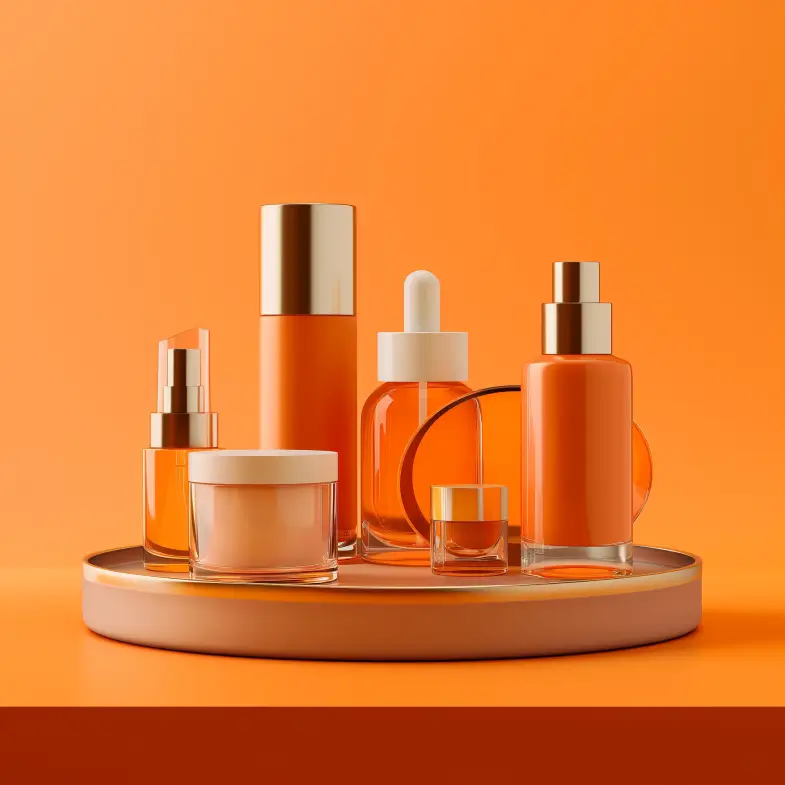


17 Responses
While there are some platform-specific nuances, the core principles are similar across most LLMs. Focus on content quality, structured data, and trusted mentions. If you optimize well for ChatGPT, you’ll generally be in good shape for other AI assistants too.
How long does it typically take to see results in ChatGPT?
Most brands see initial mentions within 30-45 days if implementing a comprehensive strategy. Technical optimizations often show results fastest (2-3 weeks), while authority building through third-party mentions can take longer (1-3 months). Consistency is key.
Will paying for ChatGPT Plus help me monitor my brand better?
ChatGPT Plus gives you access to more recent data and web browsing capabilities, which makes monitoring more effective. It’s a small investment that pays off in better competitive intelligence.
Does having my own website content indexed by AI crawlers guarantee ChatGPT mentions?
Not at all. While being indexed is necessary, it’s not sufficient. ChatGPT prioritizes information from trusted third-party sources over brand websites. Think of your site as just one voice in a larger conversation – you need others vouching for you too.
How does ChatGPT determine which products to recommend first?
ChatGPT uses a complex evaluation that considers mention frequency across trusted sources, expert endorsements, review sentiment, structured data quality, and content authority. It’s not just about who’s mentioned most frequently; it’s about who’s mentioned most positively by trusted voices.
Do product prices affect ChatGPT recommendations?
ChatGPT doesn’t explicitly favor higher or lower-priced products. However, it does reflect the overall sentiment about value. If your higher-priced product is consistently reviewed as “worth the premium,” ChatGPT will capture that sentiment in its recommendations.
Can negative reviews hurt my ChatGPT visibility?
Yes, but context matters. ChatGPT understands that even great products have some negative reviews. What hurts more is consistent criticism about specific issues (like “causes breakouts” for a skincare product). Address pattern complaints quickly to protect your AI visibility.
Is it worth hiring an agency that specializes in AI SEO?
It depends on your resources and goals. If ChatGPT is becoming a significant traffic source in your industry (check your analytics for “referred by direct / none” increases), specialized help can accelerate results. But start with the basics yourself before investing in outside expertise.
Do I need to optimize differently for ChatGPT vs. other AI tools like Google Bard?
While there are some platform-specific nuances, the core principles are similar across most LLMs. Focus on content quality, structured data, and trusted mentions. If you optimize well for ChatGPT, you’ll generally be in good shape for other AI assistants too.